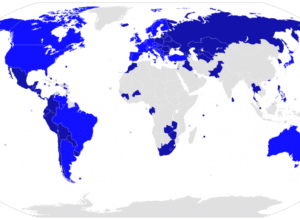
The Hague Convention on the Civil Aspects of International Child Abduction, commonly referred to as “The Hague Convention” is a multilateral treaty ratified between Australia and numerous other countries. This treaty assists those seeking the return of abducted children to their home country, and provides processes in which a parent can seek to have their child returned.
When a parent removes a child out of their home country, without the consent or knowledge of the other parent, the procedures in getting the child back is an incredible complex process, however the enforcement of the Hague Convention through Australian domestic law makes international child abduction a punishable offence. This is through the Family Law (Child Abduction Convention) Regulations 1986 (Cth) (“the Regulations”).
When a child is abducted to Australia, it is primarily the role of the Attorney General’s Department or the Department of Communities and Justice to satisfy the requirements under the Hague Convention, and the Regulations require Australian courts to order the return of a child to his/her home country unless certain specific and exceptional circumstances exist. The best interest of the child is not a paramount consideration and the discretion of a court to refuse to order the return of a child to his/her home country is very limited. The same standards are imposed by the Hague Convention on all signatories of the treaty.
If a child is abducted to a country that is not a part of the Hague Convention, then you may seek assistance from the Consular Branch of the Department of Foreign Affairs and Trade, or an application may be made under the other country’s local laws.
If you are concerned that the other parent of family member may take a child without your knowledge or consent, you should seek immediate legal advice in order to ensure the safety and wellbeing of the child.
Should you wish to discuss this matter further, please do not hesitate to contact our offices on 02 8917 8700.
